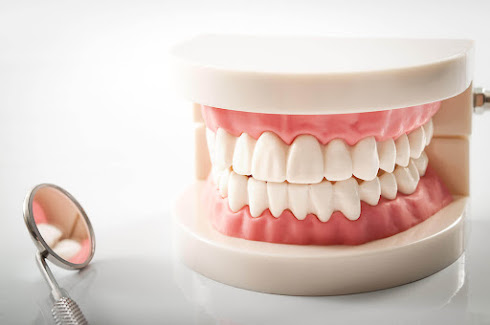Fear To Comfort: Overcoming Dental Anxiety With The Right Dentist
Visiting the dentist is an essential aspect of maintaining good oral health. However, for many individuals, the thought of going to a trusted dentist West Auckland can evoke feelings of fear and anxiety. Dental anxiety is a common issue that affects people of all ages, but the good news is that it can be overcome with the help of the right dentist.
In this article, we will explore the journey from fear to comfort, offering guidance on overcoming dental anxiety and finding a dentist who understands and supports you every step of the way.
Understanding Dental Anxiety
Dental anxiety is more than just feeling nervous about a dental appointment. It can range from mild unease to severe phobia, causing individuals to avoid dental visits altogether, which can lead to neglected oral health. Some common causes of dental anxiety include:
Fear of Pain: The fear of experiencing pain or discomfort during dental procedures is a significant factor contributing to dental anxiety. Past negative experiences or hearing about others' unpleasant dental encounters can intensify this fear.
Feeling of Helplessness or Loss of Control: Sitting in a dental chair and being unable to see what's happening can create a sense of helplessness and loss of control, leading to heightened anxiety.
Sensitive Gag Reflex: Individuals with a sensitive gag reflex may feel anxious about the potential triggers during dental treatments, such as X-rays or impression moulds.
Fear of Needles or Dental Instruments: Some people have a fear of needles or dental instruments, which can escalate their anxiety when faced with dental procedures that involve these tools.
Overcoming Dental Anxiety
If you experience dental anxiety, it's important to address it rather than avoiding dental visits altogether. Here are some strategies to help overcome dental anxiety and find comfort in the dental chair:
Communicate Your Fears and Concerns: Find a dentist West Auckland who prioritises open communication and understands your anxiety. Express your fears and concerns before your appointment so that the dentist can tailor the experience to your needs, providing reassurance and explanations throughout the process.
Seek Distraction Techniques: Many dental practices offer distraction techniques to help patients relax during treatments. These techniques may include providing headphones with soothing music, offering TV screens or virtual reality headsets, or engaging in pleasant conversation with the dental team.
Gradual Exposure and Desensitisation: If your anxiety is severe, consider scheduling a series of shorter appointments to gradually acclimatise yourself to the dental environment. Start with simple procedures and gradually progress to more complex treatments as you build trust and confidence.
Sedation Dentistry: In some cases, sedation dentistry may be recommended to help patients with severe anxiety or phobia. Options may include nitrous oxide (laughing gas), oral sedation, or intravenous sedation, depending on the level of anxiety and the complexity of the procedure.
Practice Relaxation Techniques: Before and during your dental visit, practice relaxation techniques such as deep breathing, progressive muscle relaxation, or visualisation. These techniques can help calm your mind and body, reducing anxiety levels.
Choose a Supportive Dentist: Look for a dentist who specialises in treating anxious patients or has experience in providing gentle and compassionate care. Read reviews, seek recommendations from friends or family, and schedule a consultation to assess their approach to patient comfort.
The Role of the Right Dentist
Finding the right dentist who understands and empathises with your dental anxiety is paramount to your journey from fear to comfort. The right dentist can make a significant difference in your dental experience by:
Creating a Welcoming Environment: A dentist who fosters a warm and welcoming environment can help alleviate anxiety. This includes a friendly and supportive dental team, a comfortable waiting area, and a clean and modern dental office.
Building Trust and Rapport: A dentist who takes the time to build trust and establish rapport with their patients can significantly reduce anxiety. They will listen to your concerns, address your questions, and explain procedures in a clear and empathetic manner.
Offering Gentle and Pain-Free Dentistry: Utilising modern techniques and technology, a skilled dentist can provide gentle and pain-free dentistry. This includes the use of local anaesthesia, numbing gels, and advanced tools to minimise discomfort during procedures.
Providing Patient Education: A dentist who empowers patients through education can help alleviate anxiety. They will explain the purpose and benefits of treatments, discuss alternative options, and provide oral hygiene tips to maintain oral health between visits.
Conclusion
Dental anxiety should not prevent you from receiving the necessary dental care for optimal oral health. By understanding the root causes of your anxiety, seeking the support of the right dentist West Auckland, and employing coping strategies, you can overcome dental anxiety and find comfort in the dental chair. Remember, your dental health is essential, and the right dentist is your ally in maintaining a healthy and beautiful smile. Take the first step towards overcoming dental anxiety today and prioritise your oral health for a lifetime of confident smiles.




Comments
Post a Comment